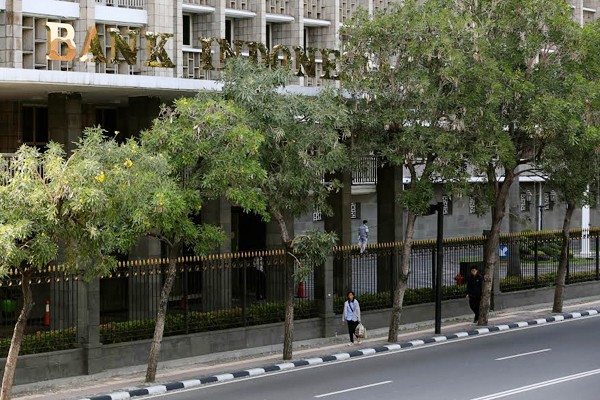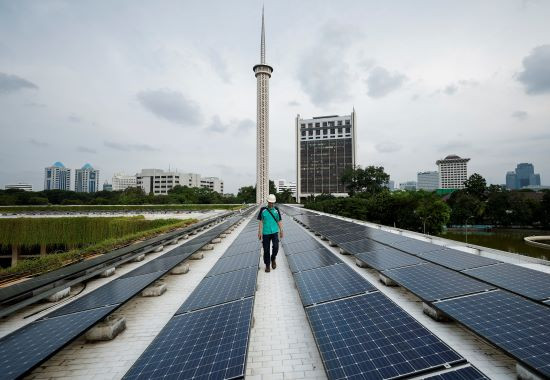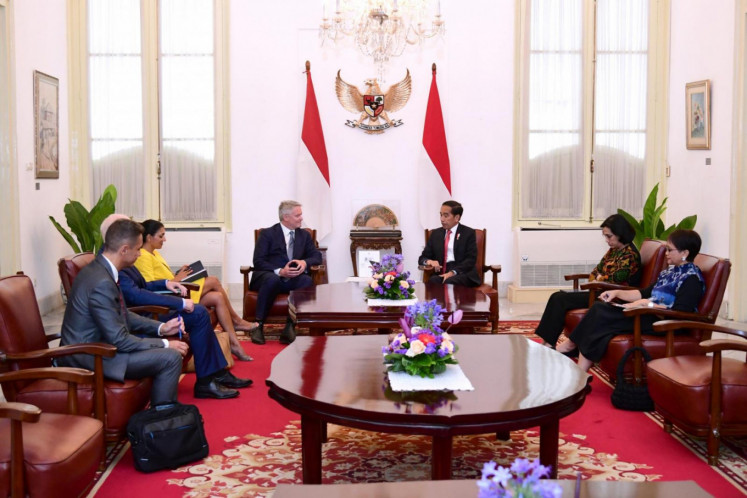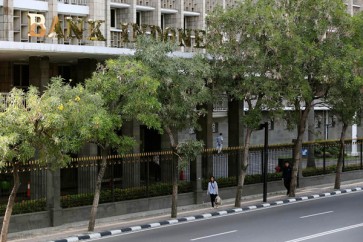The central bank's impossibility of trinity
The stance of BI’s monetary policy is shifting from “easy bias” to “easy with caution”. Implicitly, BI is adopting a “stability over growth” strategy.
Change Size
 A woman walks past Bank Indonesia (BI) building. (JP/Wienda Parwitasari)
A woman walks past Bank Indonesia (BI) building. (JP/Wienda Parwitasari)
T
he global financial market is currently waiting for the policies to be implemented by United States President Donald Trump. The school of thought adhered to by Trump typically encompasses fiscal expansion through tax cuts.
The aggressiveness of fiscal policy to boost economic growth may trigger the issuance of more bonds to absorb funds from the world’s financial markets. To rebalance them, the US central bank governor, Janet Yellen, has already signaled a hike in benchmark interest rates two to three times in 2017.
From Yellen’s point of view, the US economy should not be allowed to run “too hot” so as to not be harmful for the economic recovery that was initiated after the 2008 global financial crisis.
The maneuver of Trump and upward trend of Fed rates will undoubtedly trigger negative sentiments in the form of liquidity migration to the US financial market that are claimed to be the safest place during any uncertainty. As a result, uncertainty from a variety of negative impacts would still be shadowing the world economy for the next few years.
For Indonesia, the above phenomena should be anticipated soon. The foreign ownership of government securities, stocks and bonds are very high. Consequently, Indonesia is vulnerable to experiencing capital outflows resulting in a credit crunch, an increase in demand for foreign currency and a depreciation of the local currency.
The risk of capital outflow and exchange rate depreciation appear to be the primary considerations of Bank Indonesia (BI) in making monetary policy. The signal for those can be perceived in two things. First, the benchmark interest rate is no longer intended to support economic growth but is for financial system stabilization.
Second, the stance of BI’s monetary policy is shifting from “easy bias” to “easy with caution”. As a result, BI consistently maintained its benchmark interest rate, the seven-day reverse repo rate, at 4.75 percent in the last five months, in contrast to the previous year when BI cut it by 150 basis points throughout 2016. Implicitly, BI is adopting a “stability over growth” strategy.

















